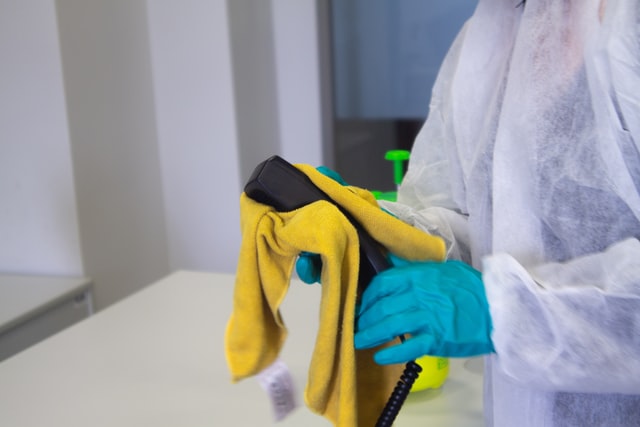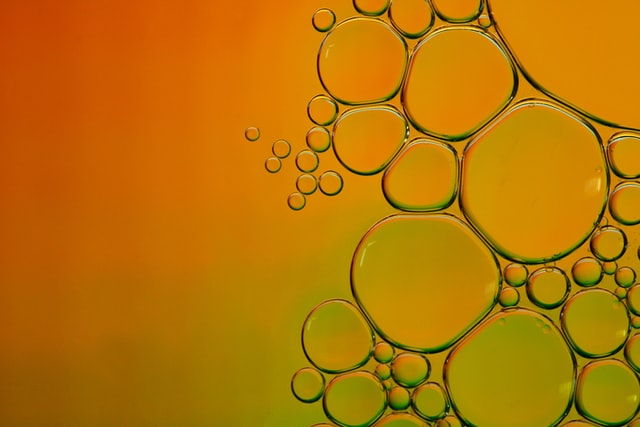Almost everyone has a boiler system installed in their home and, most of the time, they work happily away in the background keeping us warm and our water hot. So much so that it’s easy to forget that there is actually a complicated and sophisticated system installed in our homes doing all this hard work.

But when your boiler stops working the way that it should, suddenly it all becomes very noticeable. At Thomson’s Maintenance Company, we get a lot of questions on that. Chemical cleaning of boilers is a common and effective solution that can improve the functioning and efficiency of your boiler and while we don’t do the service ourselves, we thought we have to have to address it.
Explore our other guides:
Why Do Boilers Need Chemical Cleaning?
Over time, deposits can build up on the inside of the boiler system’s pipes, including copper swarf, rust, castings sands, flux residues, grease, and oil, iron oxide, and limescale. These deposits can create a sludge that effectively insulates the water in the tubes from the boiler fire. If left untreated, these deposits cause erosion and bulging of the pipes and potential boiler failure. Ultimately, that’s a big mess.

Even before the point of failure, they can cause the boiler system to stop working as efficiently as it should.
These deposits and sludge need to be removed from the system in order for it to go back to working at its optimal level and this is where chemical cleaning comes in. Professionals from Water Damage Listings say that neglecting build-ups in the long term could lead to pipes cracking under pressure and thus leading to ongoing leaks that can cause thousands in repair.
How to Tell if Your Boiler Needs Chemical Cleaning
These few tips were provided by Ben Race, an experienced heating engineer from Middlesbrough. You can tell if your boiler needs chemical cleaning in a few different ways:
- dirty water – if the water that comes out isn’t clear, this is a sign that there is a build-up of deposits
- a pH of over 6 and under 8
- radiator giving off a sulphur smell when the air is let out
New Boilers & Chemical Cleaning
All the above advice applies if you have an older boiler, but you may not realise that new boilers can actually be those most in need of chemical cleaning. This seems counter-intuitive because surely a brand-new boiler is going to be completely clean?
According to the Thomson renovators and handymen, no new boiler systems are prone to having debris and deposits accumulated either during the manufacturing process or even during installation. It is always a good idea to have a new boiler chemically cleaned as soon as possible.
How Often Should Your Boiler Be Chemically Cleaned?
This isn’t a process that needs to happen frequently, comment experts at Boiler Grants. Most boilers can last a fair few years without needing to be cleaned. Keeping an eye out for any signs that there are deposits building up is a good idea but, generally, aiming for a clean every 3 years can prevent the build-up of deposits in your boiler system.
How to Chemically Clean a Boiler
The first thing that you will need to do is
- Drain the water out of the system.
- Find the drain cock (usually found on a radiator near a doorway on the lowest level of the system).
- Attach a hose to the drain cock and drain the water to an outside drain.
- Remove any loose deposits or sludge that are flowing through the pipes.
- Refill the system with water ready for the chemical cleaning solutions to be put through.
- Vent each radiator to release the trapped air.
- Add the chemicals (for a vented system, they can be poured into the feed and expansion tank but for a sealed system you will need to use a cartridge that can be connected to an air vent on a radiator).
- Turn the heating system on. It will usually take around an hour for the chemicals to fully circulate the heating system and break down the deposits and sludge, but for systems that are very dirty, you can leave the solution in for a week or even up to a month.
What Chemicals Clean A Boiler?
There are a variety of chemical cleaning solutions on the market. They usually contain acids such as Hydrochloric, Hydrofluoric, Citric, and Phosphoric acid. They often also contain a corrosion inhibitor to protect the bare metal of the pipes once you remove the scale and passivity agents such as Hydrazine. Some will also contain chelants such as Ethylenediaminetetraacetic acid (EDTA) to help remove scale.
There are specific formulations available depending on whether your boiler is new or old because the deposit build-up will probably be quite different between the two.
For example, for new systems, you will need a chemical cleaner that is designed to remove the sorts of deposits that you would get from the manufacturing process, such as grease, oil, and post-installation debris.
Whereas for older systems, it is better to get a cleaner that can help to lift and remove the sludge that has built up in the system.
When are Chemicals not Enough to Clean A Boiler?
Sometimes, the build-up in your boiler system will be too far gone for chemicals alone to remove. In these instances, you would need to get someone in to perform a power flush on your heating system (often used in conjunction with chemical cleaners).
Signs that your boiler needs a power flush rather than a chemical clean:
- radiators that are cold at the bottom and hot at the top;
- radiators not reaching their maximum temperature;
- boiler making odd noises when turned on;
- if copper pipes fail a magnet check (i.e. if a magnet can attach to them).
These signs show that there is a large build-up of sludge and deposits that will need some extra power to flush out.
Chemical Cleaning of Boilers, Final words
Chemically cleaning a boiler is a fairly painless process that can help to improve your boiler’s longevity and efficiency. It should always be done straight after a new boiler has been installed to remove any debris that has built up from the manufacture and installation process, but older boilers will often also need to be chemically cleaned due to a build-up of deposits and sludge.
There are a variety of chemical formulations on the market that can help to lift and remove this sludge and also protect the pipes from erosion.
- Tips To Reduce Household Waste - November 25, 2021
- What is Chemical Cleaning of Boilers? What to Know? - May 25, 2021
- How to Post Clean a House After Construction or Renovation? Checklist & Tips - May 18, 2021

